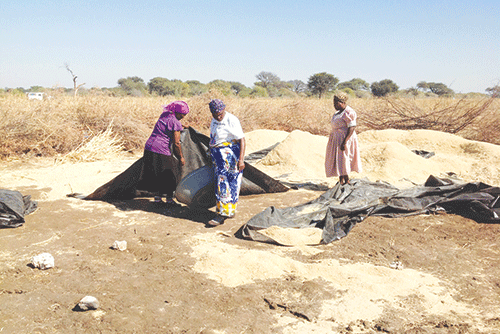Popular Democratic Movement (PDM) president McHenry Venaani is championing for agricultural mechanisation and innovation as a potent lever to galvanise rural economies.
“We believe it is significantly paramount that the agriculture ministry, forthwith, deploys modernising maize technologies such as drought-tolerant maize varieties. This technology mitigates adverse climates and lessens the risk of crop failure across many zones of sub-Saharan Africa,” he stated last
week.
Venaani also urged the ministry to streamline licensing mechanisms for the commercial multiplication of hybrid maize varieties.
He highlighted Namibia’s disconcerting import of approximately 82 000 tonnes of maize in 2023, in spite of the nation’s abundant agricultural potential.
“Namibia is blessed with a natural bounty, and possesses the raw potential to usher in an era of agricultural revolution, transforming our golden prairies into fields of abundance. It is, therefore, disheartening to note reports that the harvest for the 2023/24 season is projected to cover a mere 42% of Namibia’s white maize grain demand,” the PDM president added.
Towards the end of last year, the Office of the Prime Minister (OPM) announced that approximately 579 000 people in Namibia are estimated to be facing high levels of acute food insecurity, and require urgent humanitarian assistance.
The OPM also projected that between October 2023 to March 2024, the number of people expected to experience food insecurity would further rise to 695 000, amounting to roughly 26% of the population.
To exacerbate matters, Namibia has recently experienced below-normal and sporadic rainfall which subjected communities to prospects of lower crop yields, had severe impacts on livestock, and ultimately reduced household food stocks, severely compromising food security at household level.
Responding to Venaani, the agriculture ministry’s spokesperson Jona Musheko said suggestions made by Venaani on mechanisation and quality seed production are already being implemented by the ministry through the Namibia Agricultural Mechanisation and Seed Improvement Project (NAMSIP).
“We have recently procured more than 350 tractors and their implements, weeding machineries, diesel-powered walking tractors and many others. These equipment is all available at our regional offices and accessible by farmers,” Musheko emphasised.
Through NAMSIP, the ministry intends to improve household food security and nutrition, job-creation, household incomes and the overall livelihoods of rural communities through increased agricultural production and productivity.



